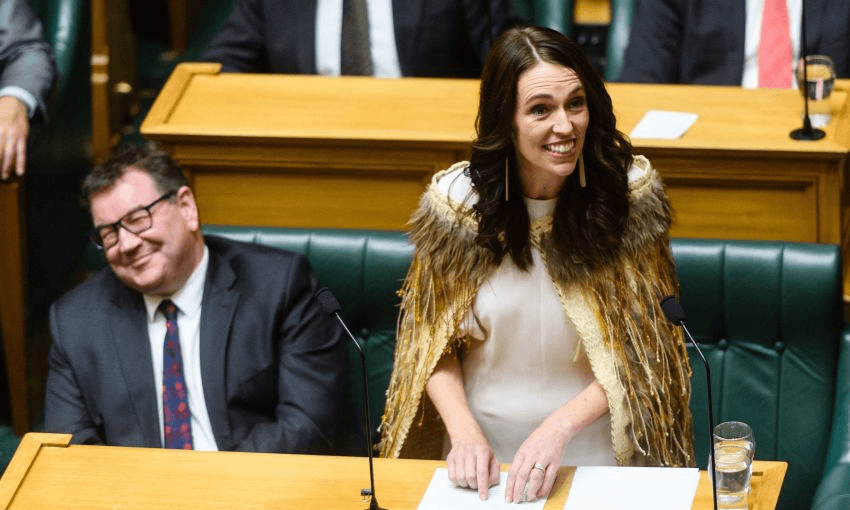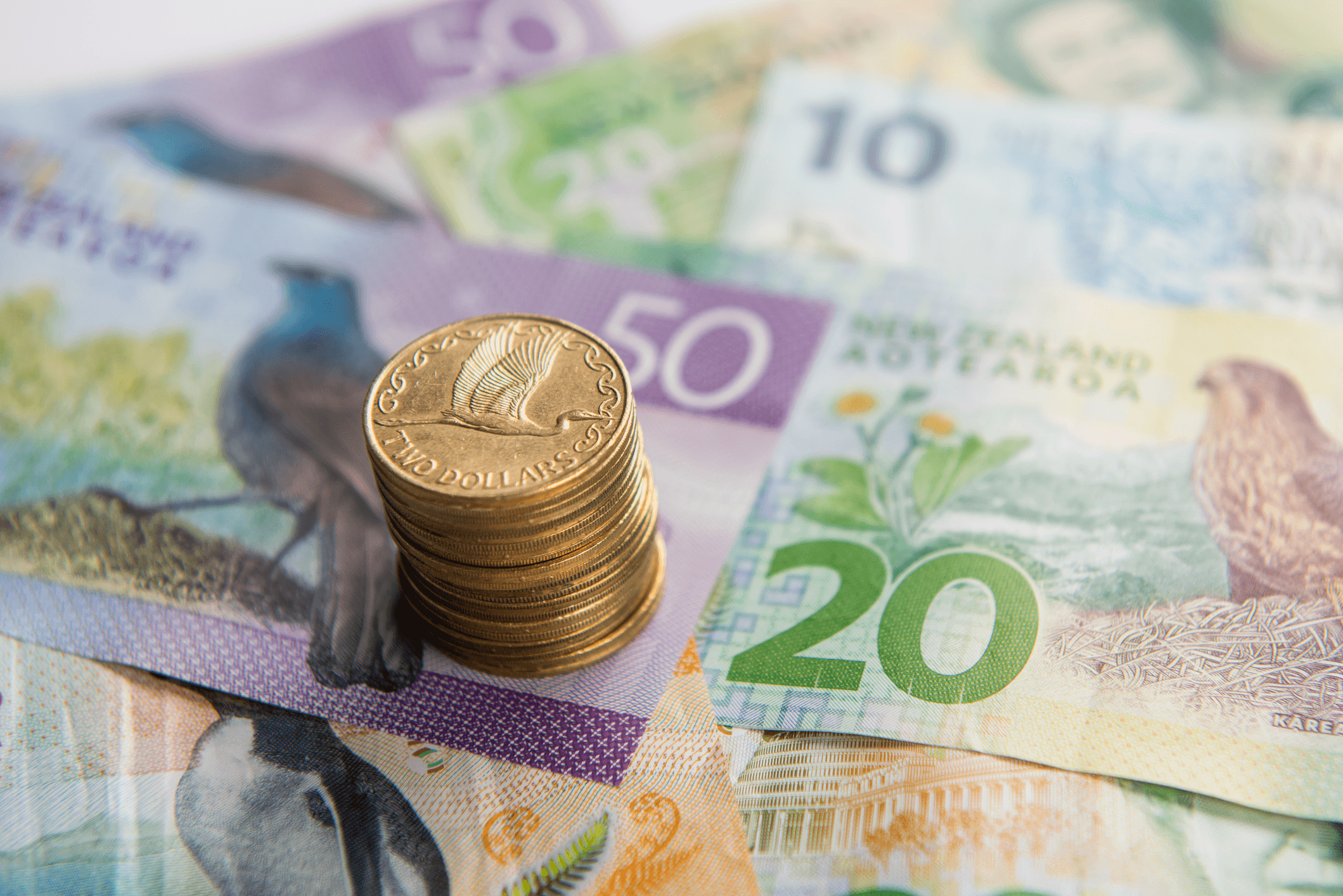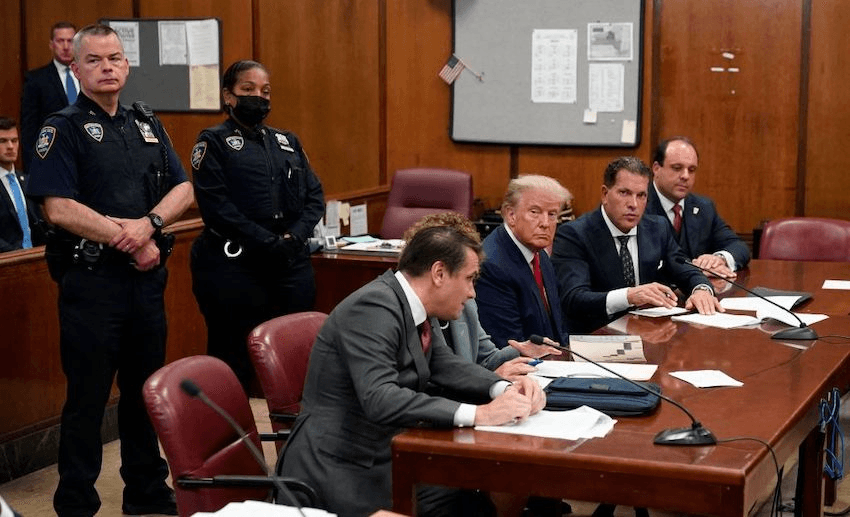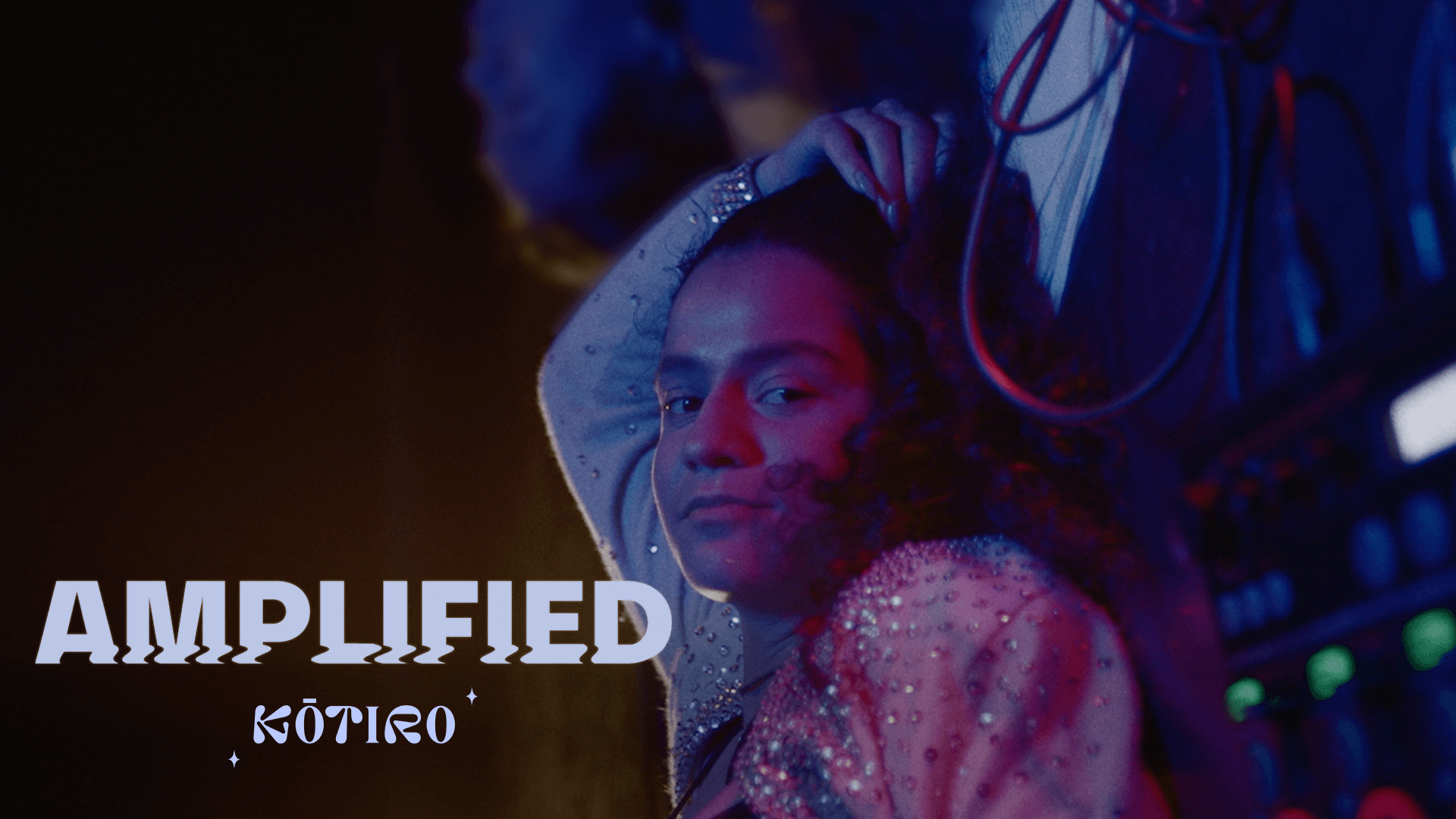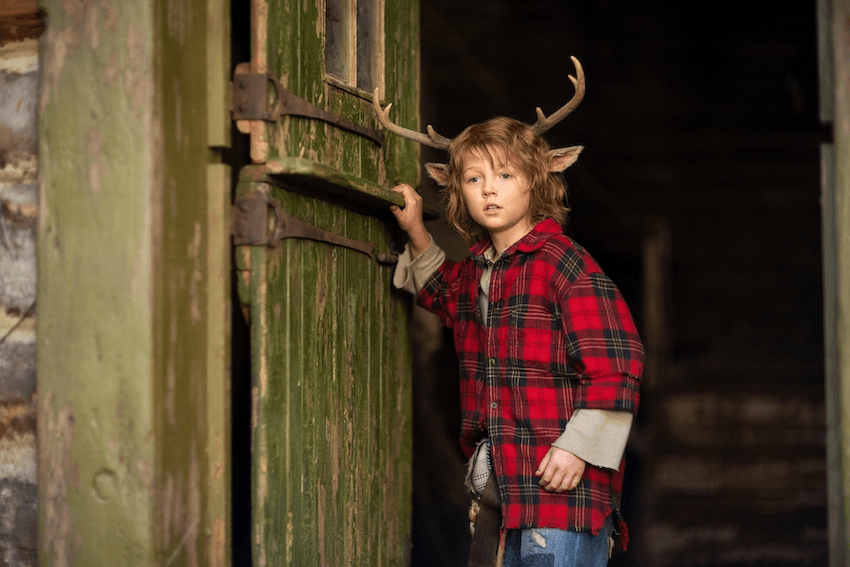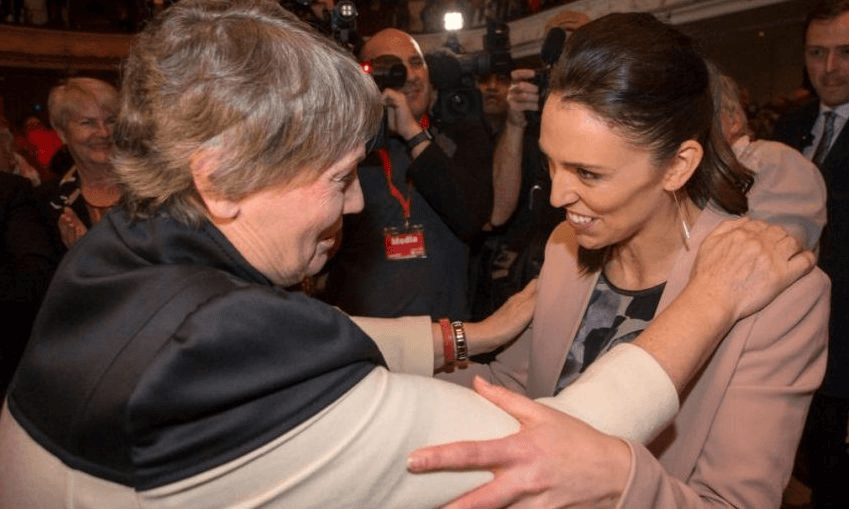Opening her valedictory address in parliament, Ardern has harked back to her maiden statement, almost 15 years ago, saying she couldn’t quite believe she was in parliament at the time, and some of that sentiment remained throughout her career. She was, she said, a “conviction based politician”, but accepted she would be associated with events including the response to the Christchurch terror attacks and the Covid crisis.
The public gallery was packed with family, friends and staff former and present. Among the guests were former prime ministers Helen Clark and Sir Geoffrey Palmer, high commissioner to Australia Annette King and Ashley Bloomfield, who had stood alongside Jacinda Ardern in countless press briefings when he was director general of health. Sitting in the front row of the gallery directly across from Ardern were her fiancé, Clarke Gayford and daughter, Neve.
Standing alongside her longtime friend and political ally Grant Robertson, she recalled the “frenetic” days of 2017 when she was thrust into the leadership. The experience was like trying to steer a freight train, she said, and “being hit by one”. She added: “There was no time to be anything but myself.” Of her description during the campaign of climate change as her generation’s nuclear-free moment, she said, “I believed it then and I believe it even more now.” She urged parliamentarians, “please, take the politics out of climate change … New Zealand needs this place to provide them with the certainty that we will keep going.”
On child poverty, the overriding mission of her time in politics, she said, “I’m not here to say that everything is perfect now, it is not.” But changes implemented by her government had meant, she said, that “despite the severe economic conditions there are 77,000 fewer children living in low income households … Now, we just need to keep going.”
There were shout-outs to James Shaw, Marama Davidson and the Greens (with an aside on the “Squid Games” within the party), but no mention of Winston Peters or New Zealand First, Labour’s coalition partners during her first term as prime minister.
She described “a tough experience, personally” during the Covid crisis. She said: “I didn’t always get it right, but we were always motivated by the right thing.” She listed the names and paid tribute to “a core team of people I relied on through that period. You, and Alison Holst sausage rolls.”
Ardern described an encounter with a group of anti-vaccine protesters in Whanganui. She asked her driver to turn back and attempted to reason with them, to appeal to the science. “I was idealistic enough to believe it would make a difference. I had to accept I was wrong. I could not single-handedly pull people out of a rabbit hole. But perhaps, collectively, we have a role to play to stop them falling in in the first place.”
She called out to the New Zealand Muslim community for their response to the attacks of March 15 2019, saying she had come to understand that “countries don’t move on from tragedies. They become part of the psyche.”
Recalling the days before becoming leader, she said: “When I was 37 years old I was told there were a range of factors that meant I hadn’t been able to get pregnant, and stress was probably one of them. We decided to use the help of science, but as so many couples experience, that wasn’t straight forward. I had not long experienced a failed IVF round when I became leader of the Labour Party. I thought I had found myself on a path that meant I wouldn’t be a mother. Rather than process that, I campaigned to become prime minister. A rather good distraction as far as they go.”
She added: “Imagine my surprise when a couple of months later, I discovered I was pregnant. There is no question I have had incredible support to be the mother I wanted to be. From the office team who tried to get me home for story time, and Neve’s village who were there when I wasn’t.”
Ardern made special acknowledgement of her parents, Gayford (“thank you for keeping my cup full”), Neve and Robertson. She concluded by saying, “I’m sensitive, or as Maggie Barry once called me, ‘a sensitive petal’.” She once “went to Trevor Mallard for advice on how to harden up.” But, “I didn’t change. I leave this place as sensitive as when I arrived.”
She concluded by saying: “I cannot determine what will define my time in this place. But I do hope I have demonstrated something else entirely. That you can be anxious, sensitive, kind and wear your heart on your sleeve. You can be a mother, or not, an ex-Mormon, or not, a nerd, a crier, a hugger, you can be all of these things, and not only can you be here – you can lead.”
